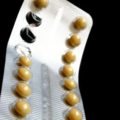
Offering the morning after pill over-the-counter without fee in the UK has not reduced the number of teenage pregnancies and researchers at the University of Nottingham say it may be associated with a 12 percent hike in sexually-transmitted diseases in under-16s.
Researchers David Paton and Sourafel Girma used local health authority data to study the impact of government-backed schemes to offer free emergency birth control (EBC) on conception rates and the diagnosis of STDs among under-18s.
EBC has been a key part of the Government’s Teenage Pregnancy Strategy which was introduced in 1999 and aimed to halve teenage pregnancy rates by 2010. Specifically, since the start of 2000, local authorities in England have been encouraged to introduce schemes that offer EBC free of charge, over-the-counter at pharmacies to teenagers under the age of 16.
The researchers found that, on average, areas operating an EBC scheme saw an overall increase of 5 percent in the rate of STDs among under-18s – with a 12 percent increase in the under-16s age group. Paradoxically, the study also found that EBC schemes may actually be associated with an increase in the number of teens falling pregnant.
“Our study illustrates how government interventions can sometimes lead to unfortunate unintended consequences. The fact that STI diagnoses increased in areas with EBC schemes will raise questions over whether these schemes represent the best use of public money,” said Paton.
Related:
Size does matter, say condom boffins
Modestly Endowed Indian Men Causing Condom Failures
HIV Prevention Message Failing
Compelling new evidence for benefits of circumcision
















Comments are closed.